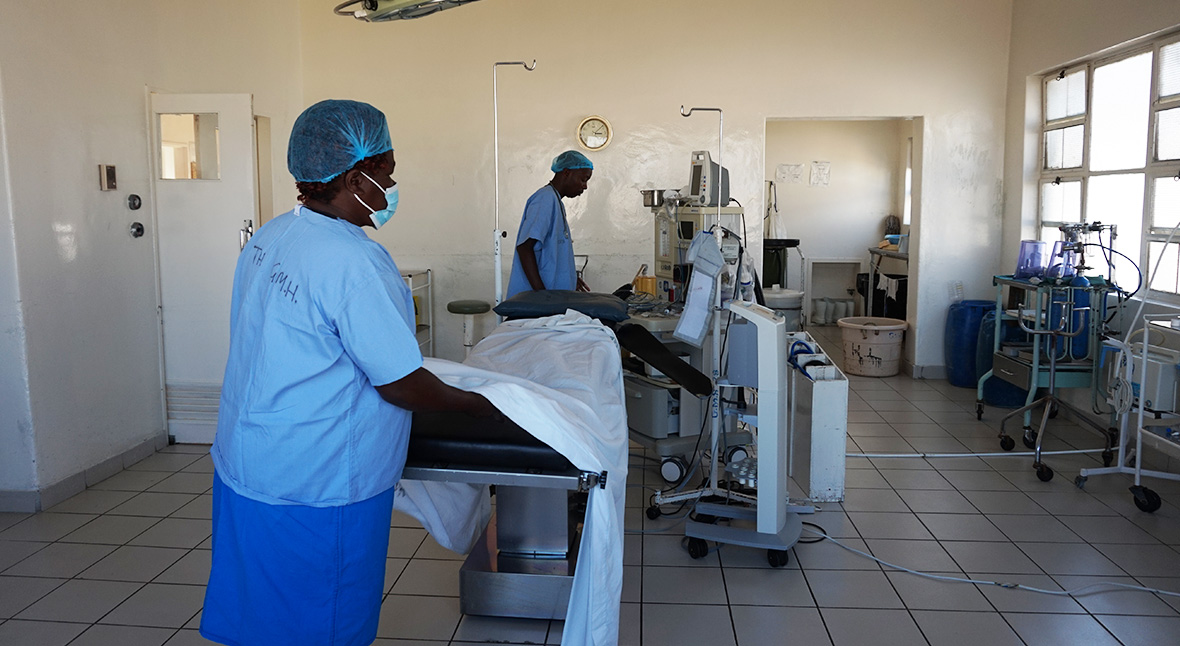They heard it, they understood it, and it was a learning process led by one of their own.
The message was universal and made progress and impacted the world.
There was more to learn from outsiders, but not much, because they already had the core. Outsiders came along to do some fine-tuning, and even that process was done by working with and through local leaders. This is how people in Colossae and possibly Laodicea and Hierapolis became established followers of Jesus some time about 60CE.1
This New Testament experience mirrors current trends as we come alongside the Reformed Church in Zimbabwe (RCZ) in its plan to improve the healthcare of mothers and their newborns in Gutu District.
While searching for a curriculum for enhancing the skills of healthcare professionals, we learned that Zimbabwe had its own homegrown program, developed, tested, and taught by local experts. We have the privilege of working with the pioneers and developers of this contextualized version of Basic Emergency Obstetric and Neonatal Care BEmONC curriculum. The developers know local disease patterns; they know how to work with limited resources and are skilled at innovations that adapt meagre supplies to meet the needs of many. Among these experts are women who have firsthand experience of childbearing in Zimbabwe as mothers, obstetricians and midwives, and university-level trainers of doctors and nurses.
The RCZ is spiritual home to many of the country’s politicians, business leaders and professionals, some of whom are participating in the church’s plans to build for better maternity services.
A medical/veterinary microbiologist university professor with interests in medical waste management who was born at Gutu Mission Hospital gave her input in the design of a new maternity unit. Architects, engineers, and project managers in Zimbabwe have donated hours of service in the initial design stages for the new maternity and newborn unit.
Among lead trainers for a medical conference to be held in Zimbabwe are physicians who are members of the RCZ. One of these trainers was key in the design of the national curriculum for Emergency Obstetrics and Neonatal Care.
The impact of health education for the public and the proper training of healthcare providers are well-known factors in improving healthcare all over the world.
The skills to reduce maternal and neonatal mortality risk are universal, but the causes of the risk vary in priority from country to country. The methods of diagnosis and intervention depend on local resources and staffing. Critically, timing of interventions depends on accessibility and quality of services.
Zimbabwe’s healthcare services are under-funded to the extent that urgent international aid is necessary.
Right now, EMAS Canada is raising funds to support local trainers with financial and material resources for a BEmONC conference to train 35-40 clinicians in Gutu District.
We are sponsoring a five-day cycling event from Sept 12-16 to raise $45,000.00.
Join us by sponsoring a cyclist or by riding a segment of the route and raising funds.
To ride a segment email peter@emascanada.org or text to 905 484 0100
Follow our team updates on YouTube
TAKE ACTION
1.Colossians 1:5-8, Colossians 2:6-7, Colossians 4:7-17
All Scripture references are taken from the New International Version (NIV)
Feature image: photo courtesy Gutu Mission Hospital – Preparing operating room for an emergency caesarean section at GMH

A physician and surgeon in his native Kenya, Peter has a passion for Christ-centred healthcare and has a wealth of experience both hosting and sending short-term mission teams.
SUBSCRIBE TO


